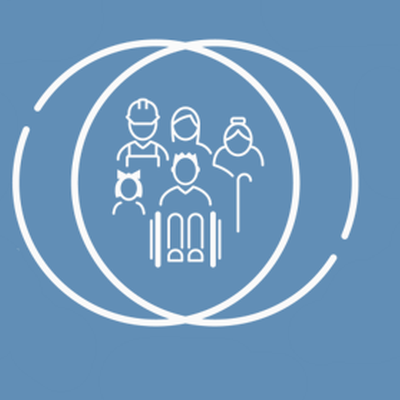Workers in the African informal economy are generally not covered by adequate social protection. Existing social insurance mechanisms are generally not adapted to the structure of the labour force and access to social assistance programmes is limited. This makes informal workers a very vulnerable and sizable proportion of the African population.
African informal sector workforces are mainly made up of unwaged agricultural workers, self-employed workers, micro-business employees, petty traders and so forth.
The transition from informal to formal is a slow and difficult process and countries should not wait for this evolution to be complete before beginning to incorporate their workers in social insurance schemes.
The European Report on Development 2010 (page 75), recommends adjusting existing social insurance mechanisms to the specific informal economy context. One approach is to have tailor-made provisions for a particular group of informally employed workers which can be extended progressively. Another approach can be to gradually integrate existing micro-insurance arrangements into the national social insurance scheme.
Other social protection measures, such as transfers in cash or in kind, can help protect informal workers from diverse risks and vulnerabilities and break the intergenerational cycle of poverty by improving their access to basic health or education.
Social protection can contribute to the transformation of a society as it can enable citizens to change from living their lives with a focus on survival to a life where one has a better control over one's fate.
"The majority of workers in the informal sector and rural workers don’t have any access to social protection,” said Uzziel Twagilimana of a Belgium-backed organisation called World Solidarity. “We are developing mutual health organisations the community themselves are paying their dues in solidarity so as to build a system of social protection as far as health care is concerned.”
"Social protection provision is not a luxury for developed countries", said Mr Twagilimana, "but should go hand in hand with development programming".
The European Commission and the African Union Commission recently co-organised a workshop on "Social protection in Africa – sharing experience in the informal economy". The workshop took place within the framework of the Migration, Mobility and Employment Partnership of the Joint Africa-EU Strategy. It was attended by representatives from EU and AU Member States, Regional Economic Committees, international organisations including ILO, UNICEF and WB and civil society organisations, social partners and experts on social protection.
To hear from some of the workshop attendees, click on the icon above. Further details of the Nairobi workshop can be found in the Public Group on Employment & Social Protection.
Social protection has proven to be of vital importance for the eradication of poverty and an important absorber of external shocks. Furthermore, social protection can foster growth by protecting assets and encouraging households to invest in riskier but higher productivity and higher return activities, and can increase social spending returns by offering poor people the means to use available services. Hence, social protection guarantees a minimum income, reduces inequalities, promotes gender equality and leads to equal access to services and goods.
The European Commission promotes the support of home-grown social protection initiatives in partner countries. There is no 'one size fits all' solution for social protection.



Log in with your EU Login account to post or comment on the platform.